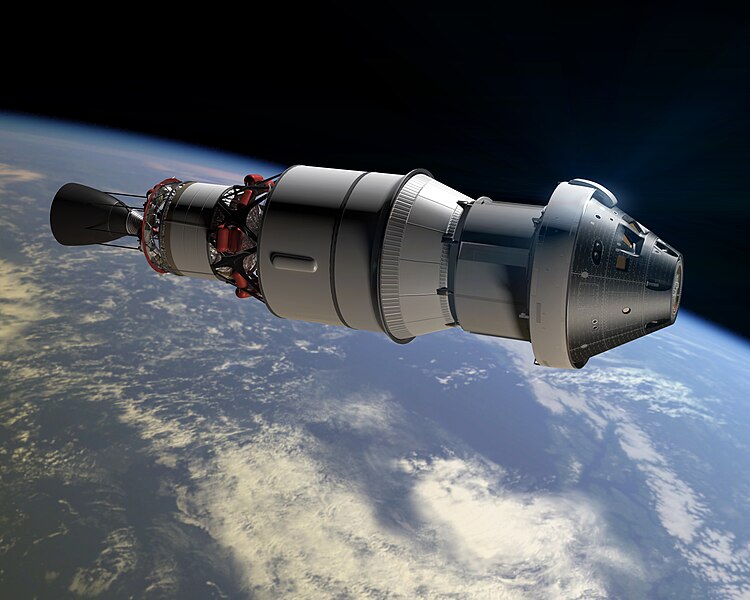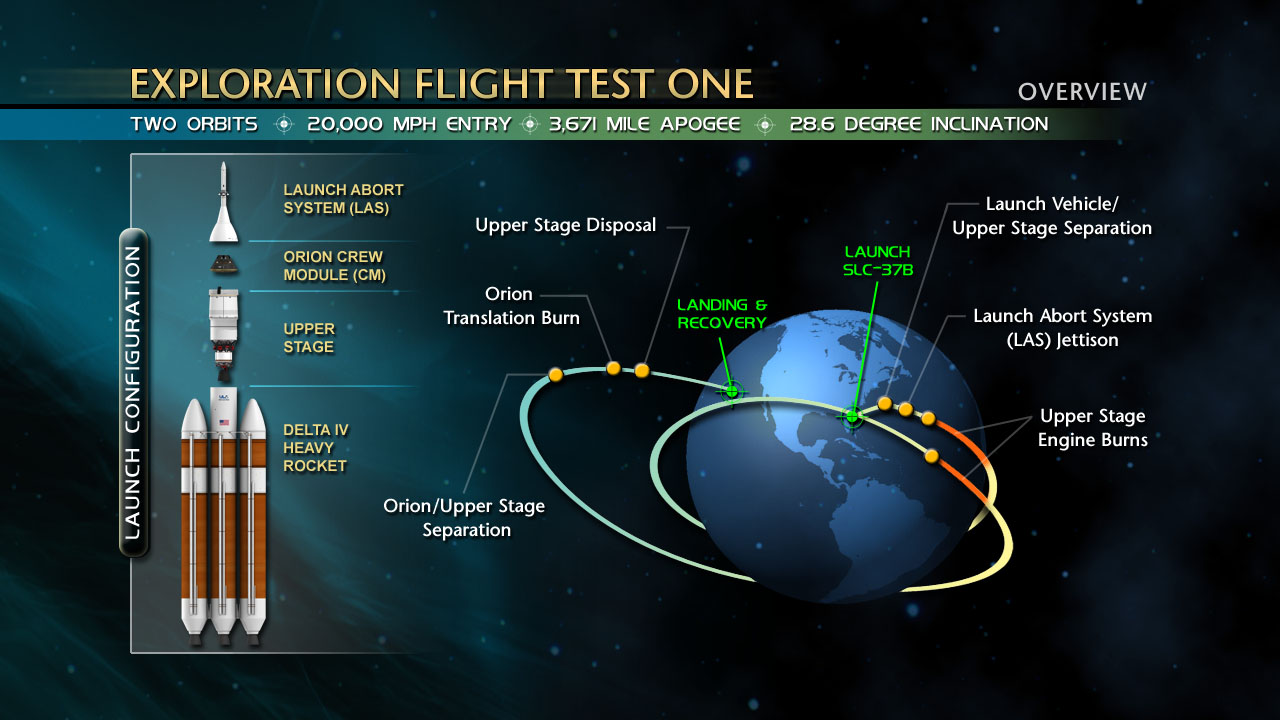Basically, a big loop out and back to test controls, re-entry, parachutes etc.
Delta IV is being used largely because of slips and costs in the SLS program (space launch system rocket), and the need for the Orion program to demonstrate some progress after 10 years and several $billion (Orion started in 2004 as the crew exploration vehicle, CEV.)
No humans on Orion EFT-1, it isn't completely ready for them yet and won't be for several more years.
Orion EM-1 (exploration mission 1) is scheduled to launch on an SLS in 2017 for an unmanned loop around the Moon and back, barring more SLS slips.
Orion EM-2 is the first crewed SLS mission into lunar orbit in 2021, supposedly to rendezvous with a captured asteroid - a mission Congress (both sides) refuses to fund because NO ONE outside the White House seems to want it.
http://www.spacetoday.net


Delta IV is being used largely because of slips and costs in the SLS program (space launch system rocket), and the need for the Orion program to demonstrate some progress after 10 years and several $billion (Orion started in 2004 as the crew exploration vehicle, CEV.)
No humans on Orion EFT-1, it isn't completely ready for them yet and won't be for several more years.
Orion EM-1 (exploration mission 1) is scheduled to launch on an SLS in 2017 for an unmanned loop around the Moon and back, barring more SLS slips.
Orion EM-2 is the first crewed SLS mission into lunar orbit in 2021, supposedly to rendezvous with a captured asteroid - a mission Congress (both sides) refuses to fund because NO ONE outside the White House seems to want it.
http://www.spacetoday.net
First Orion test flight slips to December
The first launch of NASA's Orion spacecraft has been delayed from September to December because of issues with the launch manifest, NASA announced late Friday. The Exploration Flight Test 1 (EFT-1) mission will launch an uncrewed Orion atop a Delta 4 Heavy rocket into an elliptical orbit to test spacecraft systems, including a high-speed reentry. NASA announced late Friday that while the spacecraft will be ready to support a launch in September or October, they are now targeting a launch in early December so that United Launch Alliance (ULA), which constructs Atlas and Delta rockets, can "support allowing more opportunities for launches this year." Reports speculate that the delay will make room for ULA to launch a pair of previously-classified space surveillance satellites prior to the Orion test.
The first launch of NASA's Orion spacecraft has been delayed from September to December because of issues with the launch manifest, NASA announced late Friday. The Exploration Flight Test 1 (EFT-1) mission will launch an uncrewed Orion atop a Delta 4 Heavy rocket into an elliptical orbit to test spacecraft systems, including a high-speed reentry. NASA announced late Friday that while the spacecraft will be ready to support a launch in September or October, they are now targeting a launch in early December so that United Launch Alliance (ULA), which constructs Atlas and Delta rockets, can "support allowing more opportunities for launches this year." Reports speculate that the delay will make room for ULA to launch a pair of previously-classified space surveillance satellites prior to the Orion test.



